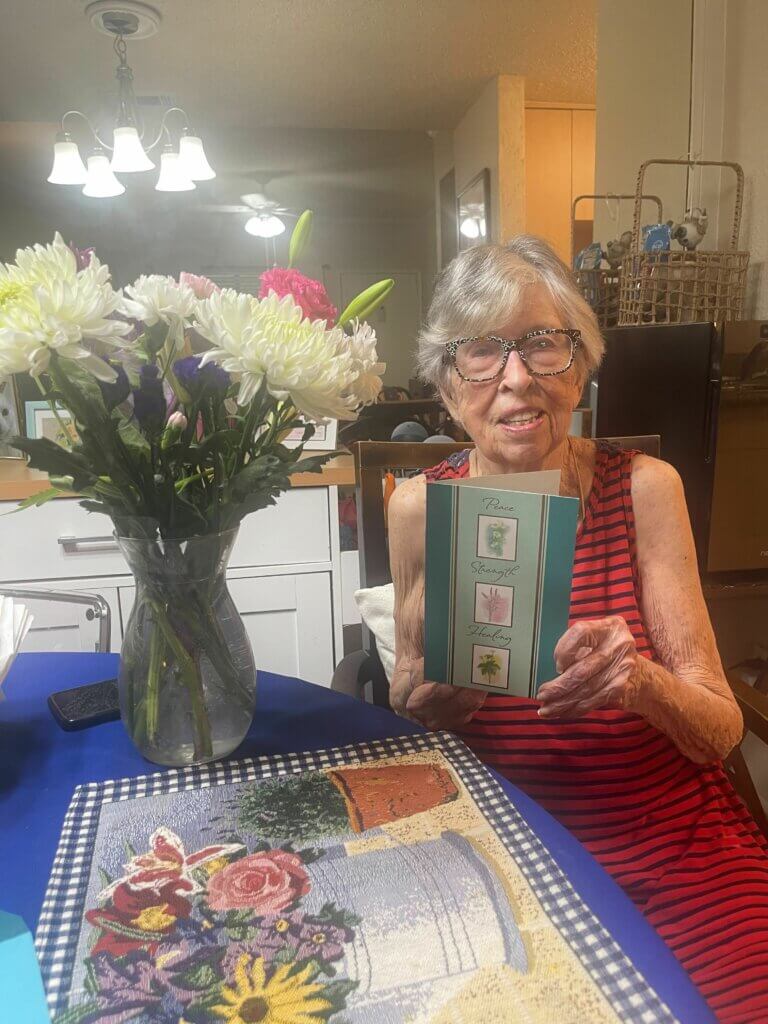Unlock essential strategies for effective communication with dementia patients, enhancing their care and your understanding.
Effective communication with dementia patients is a vital skill that can significantly enhance their quality of life and the caregiving experience. As dementia progresses, it can alter the way individuals perceive and express themselves, making communication challenging yet more important than ever. This blog aims to equip caregivers and family members with key strategies for improving communication with their loved ones who have dementia.
Make sure to read the complete dementia series:
Dementia Series Pt. 1: Understanding Dementia in Seniors
Dementia Series Pt. 3: Creating a Dementia-Friendly Environment
Understanding the Communication Challenges
Communicating with someone who has dementia requires understanding and patience. As dementia affects cognitive functions, patients may struggle with:
- Language and Speech: Difficulty in finding the right words or following conversations.
- Memory Loss: Challenges in remembering recent conversations or events.
- Attention and Concentration: Reduced ability to focus on lengthy discussions or complex topics.
Recognizing these challenges is the first step in adapting your communication approach.
Strategies for Effective Communication
Effective communication with dementia patients isn’t just about what you say, but how you say it. Here are some strategies to consider:
- Use Simple Words and Short Sentences: Keep your language clear and straightforward to avoid confusion.
- Maintain Eye Contact and Use Non-Verbal Cues: Body language and facial expressions can convey a lot of meaning and provide comfort.
- Speak Slowly and Clearly: Give them time to process the information and respond.
Listening with Patience and Empathy
Active listening is a crucial aspect of communicating with dementia patients. It involves:
- Being Patient: Allow them time to express their thoughts without rushing them.
- Showing Empathy: Acknowledge their feelings and frustrations.
- Avoiding Arguments: It’s important to not correct or argue with them over their perceptions or memories.
Understanding Non-Verbal Communication in Dementia
Non-verbal cues play a significant role in communication, especially when verbal abilities decline. Paying attention to body language, facial expressions, and even the tone of voice can provide insights into what the person might be feeling or trying to convey.
- Observe Body Language: Look for signs of discomfort, agitation, or happiness.
- Use Your Own Non-Verbal Cues: Smile, make gentle eye contact, and use reassuring touches to convey your message and feelings.
Handling Difficult Conversations and Emotional Outbursts
Conversations with dementia patients can sometimes be challenging, particularly when they experience confusion, fear, or frustration.
- Stay Calm and Reassuring: Your calm demeanor can help de-escalate difficult situations.
- Redirect the Conversation: If a topic is causing distress, gently steer the conversation towards something more comforting.
- Provide Reassurance: Use phrases like “You’re safe here” or “I’m here with you” to provide comfort.
Creating a Supportive Environment for Communication
The environment plays a crucial role in facilitating effective communication.
- Minimize Distractions: Choose a quiet, comfortable place for conversations.
- Regular Interaction: Frequent, brief conversations can be more effective than less frequent, longer ones.
- Inclusive Activities: Involve them in simple activities that encourage interaction and expression, like looking through photo albums or listening to music.
Mastering effective communication with dementia patients is a journey of patience, empathy, and continuous learning. By employing these strategies, caregivers and family members can significantly improve their interactions with their loved ones, ensuring they feel heard, understood, and valued.
Home Matters Can Help
Improving communication with a loved one who has dementia is a challenge, but it’s not insurmountable. If you need further guidance or support, consider reaching out to dementia care professionals like Home Matters Caregiving. Our team is dedicated to providing the care, support, and understanding that your loved one deserves.
Contact us at 832-371-6600 for a free consultation to share the challenges you’re facing, and to learn how our personalized home care services can help you.
Home Matters Caregiving proudly serves the Houston Metro area providing care for seniors wherever they call home.












